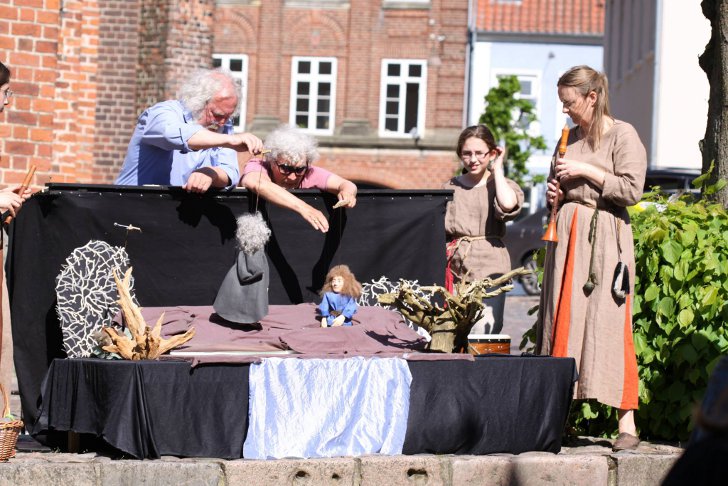Duke Hans the Elder, commonly referred to as John of Elder or John of Denmark in English, was the son of King Frederick I of Denmark and his second wife Sophie of Pomerania. He was born in 1521 in Haderslevhus, a royal castle in Haderslev. John was brought up as a possible heir to the Danish throne, but he did not inherit. Following his father’s death in 1533, the nobility elected John’s elder brother, Prince Christian, as king.
In 1544, King Christian III, John and their younger brother Adolf divided the duchies of Schleswig and Holstein among themselves according to approximately equal tax proceeds. Since John chose the part with Haderslev and ruled from Haderslevhus, he was made Duke of Schleswig-Holstein-Haderslev. During his reign, John supported the Reformation, founded several educational and social institutions, and reformed the legal system.
Duke John the Elder was beloved by his subjects and is still a popular figure in Haderslev, where an annual festival is dedicated to him and his legacy. The Hertug Hans Festival is a three-day celebration of the town’s history that usually takes place on the first weekend of June and attracts over 20,000 attendees every year, which is roughly equal to the town’s population.
The Hertug Hans Festival originated as Hertug Hans Fest, an annual historical fair that was run by Hertug Hans Lauget in collaboration with the municipality from 2003 to 2013. When Hertug Hans Lauget closed down, a group of volunteers took over the event and relaunched it as Hertug Hans Festival because they wanted the town to have a festival that pays tribute to Haderslev’s unique history and the time of Duke Hans the Elder’s rule and the Reformation, which is widely regarded as the golden era of Haderslev.
The present-day Hertug Hans Festival is a folk and historical festival run by a non-profit association that is financed by member contribution, grants and sponsorships, independent from the municipal budget. The festival is staged in collaboration with local museums, cultural organizations, and other stakeholders.
During the Hertug Hans Festival, Haderslev transforms into a historic village with a vibrant atmosphere. The festival offers a rich and diverse program that has something for visitors of all ages, but there is a particular focus on children and families with children. It includes an art and craft market, live music and shows, storytelling, a historic procession and the selection of the honorary duke, historical reenactment and jousts, a variety of workshops and demonstrations, and more.
Several hundred artists, crafters, musicians, and actors from all other the country participate in the festival every year, making the Middle Ages and the Renaissance come alive and giving visitors the unique opportunity to experience the past.

Photo: Hertug Hans Festival




